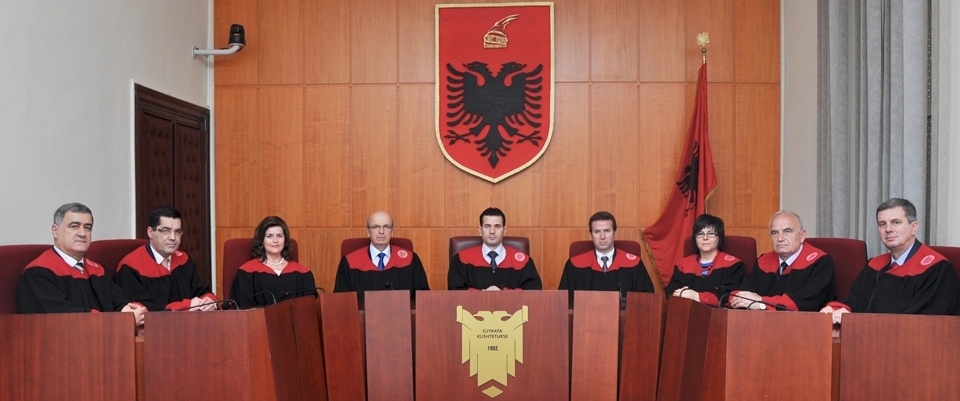
President Meta has selected Vitore Tusha as his nomination for Chairwoman of the State Supreme Audit Institution (KLSh), as the current Chairman Bujar Leskaj’s term has ended.
The official announcement by the President’s office states that:
The President, after having gone through a transparent and objective process, reached to the conclusion that Doctor of Juridical Science Vitore Tusha fulfills the legal conditions and criteria, while also being the most appropriate candidate to be elected to this constitutional office.
As prescribed by law, Tusha’s candidacy should pass parliamentary voting.
Vitore Tusha is one of the only two members of the Constitutional Court having passed the vetting process and been confirmed in duty. The other member of the Constitutional Court is its Chairman Bashkim Dedja, of who the International Monitoring Operation (ONM) and the Public Commissioners have demanded the removal from duty by the Special Appeals Chamber.
The approval by Parliament of Vitore Tusha as Chairwoman of KLSh would cause another deadlock impasse in the already belated process for the forming of the Constitutional Court and other judiciary institutions.
Below Exit.al explains this deadlock and the harm Vitore Tusha’s nomination as Chairwoman of KLSh would cause.
One of the major goals of the judicial reform was the building of interdependence relations between the new judicial institutions, as a way to ensure the more checks and balances amongst them.
Thus, the Justice Appointments Council (KED), which has the constitutional duty to assess and rank the new member candidates to the Constitutional Court, should be composed of 9 members coming from different levels of judicial institution.
According to Art.149/(3) of the Constitution, the nine member of KED should come from the following backgrounds:
- Two judges from the Constitutional Court
- One judge from the High Court
- One prosecutor from the General Prosecution
- Two judges from the Appel Court
- Two prosecutors from the Appeal Prosecution
- One judge from the Administrative Courts
As mentioned above, only two judges of the Constitutional Court have passed the vetting process so far – Tusha and Dedja – a sufficient number not to hamper the forming of the KED, which has a key role in the forming of all other new judicial institutions (KJP, KLGj, ILD), including the Constitutional Court itself.
Given that forming of KED and subsequent nomination of members for other judicial institutions requires two members from the Constitutional Court, it will be theoretically impossible for the Constitutional Court to form, in case Vitore Tusha is nominated Chairwoman of the SSAI, and Bashkim Dedja is not confirmed in duty by the Special Appeals Chamber.
Hence, Vitore Tusha and Bashkim Dedja must remain Constitutional Court judges in order to enable the election of their future colleagues. Otherwise, it would be legally impossible for the forming of other new judicial institutions to proceed without first amending the Constitution once again.

